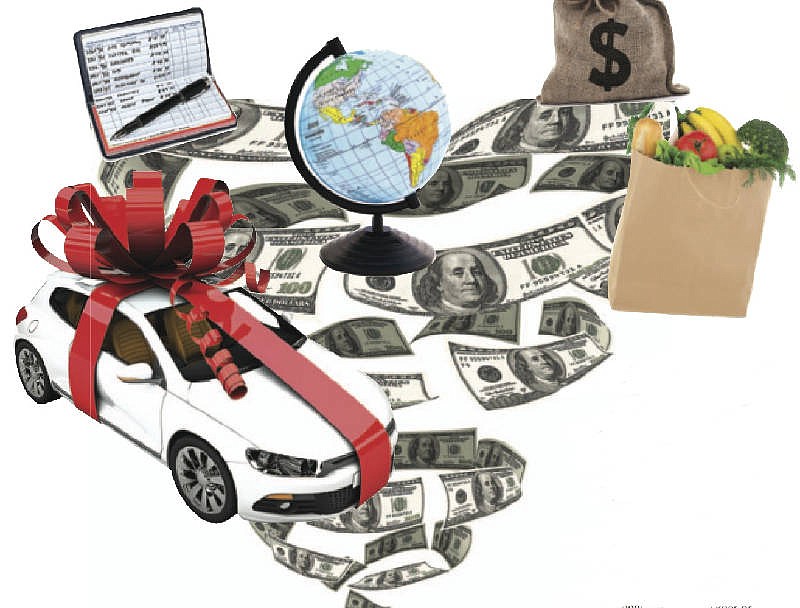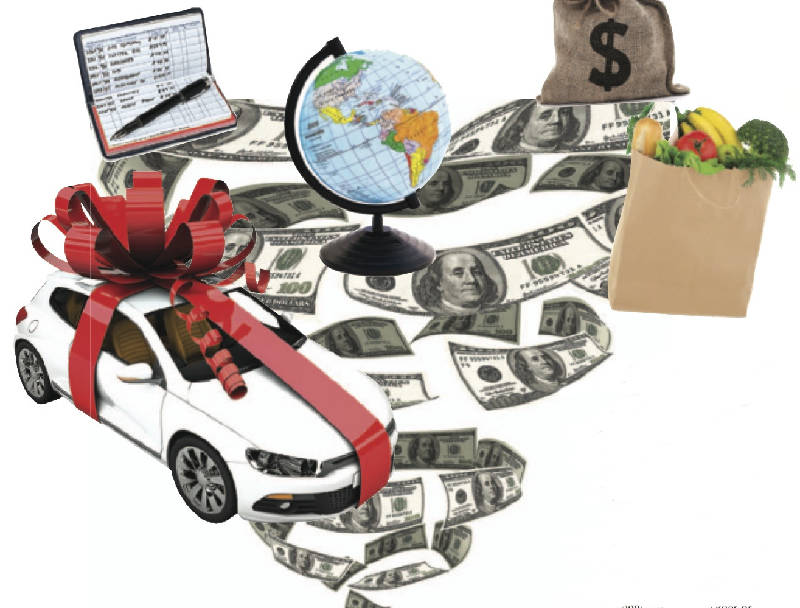Tax refunds by the numbers
› $2,945. - Average refund› 60 million - Number of refunds issued so by by the IRS› $176 billion - Total value of refunds issued so farSource: Internal Revenues ServiceWhat people are doing with refunds› 49.2 percent of those expecting a refund plan to save the money rather than spend it right away› 34.9 percent plan to pay down debt› 22.4 percent will use the refunds for everyday expenses. › 11.4 percent plan to book a vacation› 9.2 percent plan to spend on major purchases like a television or car.› 8.3 percent planning to indulge on a purchase like a salon or spa service or an elaborate night out.Source: National Retail Federation
Since most people got their annual tax refund this time of the year, this is usually the busiest time of the year at Slaten Discount Furniture Inc., a store on Battlefield Parkway in Fort Oglethorpe, that has a 76-year history in the Chattanooga area.
But business has been slower than normal.
"We haven't seen any tax money this year, for the most part," said Ed Slaten, grandson of the furniture store's founder. "Normally, this is our best time of year. We've seen a little, but not anywhere near normal. I'd say half the people coming in say they're still waiting on it."
The U.S. Internal Revenue Service has issued nearly 60 million refunds so far this year, IRS spokesman Mark Green said, more than half of the total that the agency anticipates issuing this year. The total value of the refunds is almost $176 billion, with an average value of $2,945.
More than 53 million of those refunds were directly deposited into taxpayer accounts, almost 90 percent of all refunds to individuals this year.
For a number of people, the annual refund puts more money in their pocket than any other time of year, spurring purchases of such big-ticket items as cars, furniture and appliances.
This year, however, more people plan to hang on to their tax refunds, at least for the time being, according to the National Retail Federation's annual Tax Returns Survey. It found that 49.2 percent of those expecting a refund plan to save the money rather than spend it right away - which the federation says is the highest percentage in the survey's history.
"Americans this year see refund season as a time to improve their financial health by using their refunds to get ahead on savings goals, pay down debt and plan for purchases in the future," NRF President and CEO Matthew Shay said in a statement. "Money saved is spending potential down the road."
Nationwide, some car dealers report that more than 40 percent of their annual sales come between February and April, when most Americans get their tax refunds.
Sales were good - but over sooner - at Wright's Motor Co., a buy-here, pay-here used car lot on Rossville Boulevard that has been family-owned since 1973, said its manager, Jason Wright.
"We had a good tax season, but it just didn't last long," Wright said. "It was booming there for a month, and then it just quit. Used to, it lasted a couple of months."
Part of what fuels the tax-refund boom is the earned income tax credit (EITC), a lump-sum payment in the form of a refund for low- and moderate-income people raising children.
It pumps billions of dollars into the economy.
In Tennessee last year, 657,000 residents got an average credit of $2,492 for a total of $1.6 billion, according to the National Conference of State Legislatures. In Georgia, 2 million got an average credit of $2,450 for a total of $5.2 billion last year, the conference found, and in Alabama, 516,000 recipients got an average of $2,732 for $1.4 billion.
Nationwide, 28 million working families that will benefit, with each receiving a tax credit averaging more than $2,300, or more than $64 billion, according to the White House.
With all that money out there for the taking, there's growing competition among retailers to grab a share.
"The average person, if they're getting some tax money in, they look to buy some furniture, they look to buy a car, they look to buy a dozen things," Slaten said. "They'll spend it so many places."
Wal-Mart last year announced the launch of a first-of-its-kind service that allows consumers to "skip the check" and pick up their tax refunds in cash at Wal-Mart stores. The retail giant expects that people who pick up their refunds at a Wal-Mart store will spend at least a portion of it there, retail industry analysts say.
Some car dealers have partnered with tax preparers to let car buyers borrow against their refund.
"Car places are doing taxes now - anything to get ahold of it," Slaten said. "It's harder and harder for small mom-and-pop stores to compete with everything going on out there."
The earned income tax credit was launched in 1975 during Gerald Ford's presidency to provide an incentive to work. It's been expanded since then with bipartisan support, including by President Ronald Reagan, who called it the "the best anti-poverty, the best pro-family, the best job creation measure to come out of Congress." Both President Barack Obama and Republican House Speaker Paul Ryan have backed proposals to expand the EITC this year, mainly through a boost in the credit for childless workers.
Not everyone is a fan of the earned income tax credit, with fraud being one source of criticism. Up to 25 percent of payments made in fiscal year 2012 were improper, according to a 2013 audit by the Treasury Inspector General for Tax Administration that blamed fraud on such factors as complexities of the tax law, taxpayer confusion and "unscrupulous tax return preparers."
Contact staff writer Tim Omarzu at tomarzu@timesfreepress.com or www.facebook.com/MeetsForBusiness or twitter.com/meetforbusiness or 423-757-6651.

